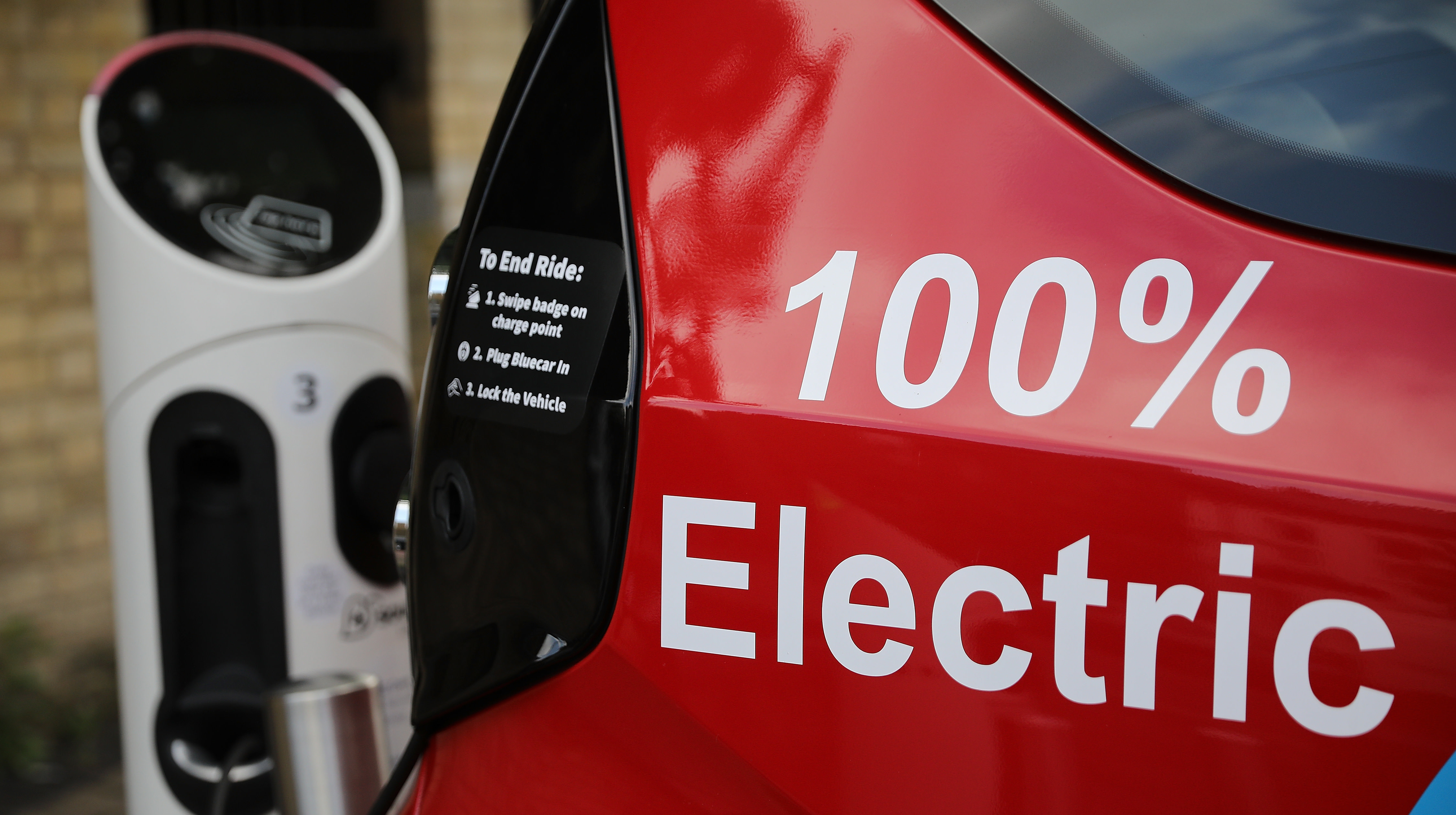Slower Charging Might Help Secure An EV Future: Report
While it seems like most of the world is focused on finding ways to charge electric vehicles quickly, some European power companies have actually come to the opposite conclusion. It may actually be better—and more sustainable—to charge our EVs slowly during off-peak hours.
EVs are becoming a more appealing option to car buyers looking to become more eco-friendly. However, fast, frequent charging puts a pretty massive strain on existing power networks, which aren't equipped to cope with a huge increase in electricity, Reuters reports. That puts populations at risk for brownouts or expensive upgrades to power networks that will likely come out of taxpayers' pockets.
A fifteen-month study conducted in Stuttgart, Germany helped to alleviate some of the worries of the power companies—but only if people will be willing to adopt slower overnight charging as opposed to the rapid top-ups that we're used to with ICE power. Here's more from Reuters:
The engineers at Netze BW, the local grid operator behind the trial, found that all the households involved came around to leaving their electric cars plugged in overnight and only half ever charged simultaneously.
"Since the experience with the project we have become a lot more relaxed. We can imagine that, in future, half of the inhabitants of such a street own electric vehicles," said Netze BW engineer Selma Lossau, project manager for the study.
While that study doesn't account for the speedy charging you'd need to take a longer road trip, Netze BW are pretty happy with the results. At the very least, the people who only use their EVs for reasonable daily commutes won't be overloading the power grid if they can help it.
Norway conducted a similar study, albeit within the confines of real life. Almost half of Norway's new car sales are zero-emissions vehicles, so the problem of outdated power grids has become a problem in everyday life. From Reuters:
A study by energy regulator NVE showed that Norway faces a bill of 11 billion crowns ($1.2 billion) over the next 20 years for low- and high-voltage grids, substations and high-voltage transformers – unless it can persuade car owners to charge outside peak afternoon hours.
The investment cost to the country of 5.3 million people could drop to just over 4 billion crowns if cars are charged in the evening, and may fall close to zero if batteries are only plugged in at night, NVE said.
That's a pretty massive change in the amount of money needed for a widespread adoption of EVs if consumers are able to change their charging habits pretty drastically. That said, there will likely have to be some pretty strong incentives to encourage people to make that initial switch. Norway has already found some interesting options:
NVE is now working a tariff proposal which will penalize peak-hours charging. Tibber, a Norwegian power company, already offers cheaper electricity for EV charging if you let it decide when your car is charged while firms such as ZAPTEC offer ways to adjust charging to the available grid capacity.
I don't know if what Reuters is describing is necessarily 'penalizing.' Rather, it seems as if NVE is incentivizing more ideal charging hours, which has looked to be a successful strategy. People are more willing to adopt a new way of life with a little encouragement, not a slap on the wrist.
Data here is, admittedly, pretty limited given the fact that EVs have only started to become more prevalent in recent years, which doesn't exactly give researchers a ton of time to figure out all the complications regarding this new tech. That said, Hamburg, Germany is starting a three-year pilot program to identify potential overloads in the power system as a result of EV charging, and Netze BW will be pulling off the same experiment, but with an apartment building instead of a few houses on a street.
All that is to say: our mindset regarding the availability of power for our vehicles might have to undergo a radical change sometime in the near future.
